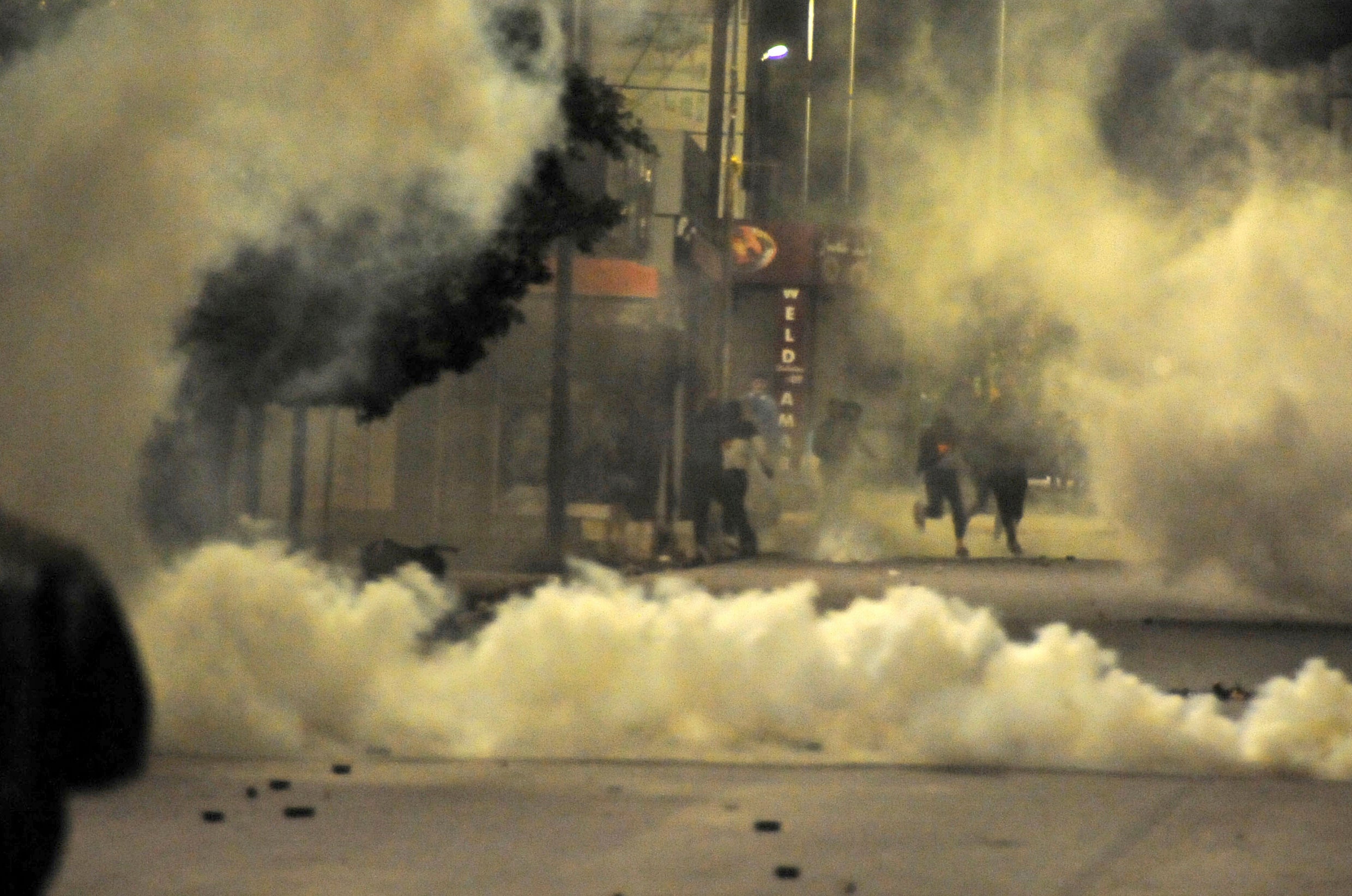Outreach by Tunisian leaders fails to quell youth unrest
Tunisian youth clashed with police overnight, maintaining their protests and riots over economic difficulties despite efforts by the president and prime minister to calm tensions

Your support helps us to tell the story
From reproductive rights to climate change to Big Tech, The Independent is on the ground when the story is developing. Whether it's investigating the financials of Elon Musk's pro-Trump PAC or producing our latest documentary, 'The A Word', which shines a light on the American women fighting for reproductive rights, we know how important it is to parse out the facts from the messaging.
At such a critical moment in US history, we need reporters on the ground. Your donation allows us to keep sending journalists to speak to both sides of the story.
The Independent is trusted by Americans across the entire political spectrum. And unlike many other quality news outlets, we choose not to lock Americans out of our reporting and analysis with paywalls. We believe quality journalism should be available to everyone, paid for by those who can afford it.
Your support makes all the difference.Tunisian youth clashed with police overnight, maintaining their protests and riots over economic difficulties despite efforts by the president and the prime minister to calm tensions
"Your voice is heard, and your anger is legitimate, and it is my role and the role of the government to work to realize your demands and to make the dream of Tunisia to become true,” Prime Minister Hichem Mechichi appealed to the protesters on national television Tuesday night.
Hours later, dozens of people throwing projectiles and setting barricades on fire faced off with police firing tear gas in the Tunis suburb of Ariana. Unrest was reported in other cities as well, the fifth straight night of protests that prompted Tunisia to deploy the army to try to keep order.
The unrest has shaken the country just as it marks 10 years since an uprising over similar frustrations that pushed out a longtime autocrat, ushered in a new democracy and unleashed the Arab Spring uprisings.
A third of the North African nation’s young people are unemployed. This and Tunisia's prolonged economic crisis — aggravated by the coronavirus pandemic — have fueled the anger. Protests have notably rocked impoverished towns in the interior of the country but also reached bigger cities on the coast.
“I know that the economic and social situation is a crisis deepened by COVID and the necessary measures that we have taken to preserve the health of Tunisians, and that they (lockdown measures) have limited some personal freedoms such as the freedom of movement,” the prime minister said.
However he condemned looting and violence by protesters, who have sometimes targeted police.
“I make a distinction between the peaceful protests and acts of robbery and sabotage,” he said, adding that while Tunisia's post-revolution Constitution guarantees the right to protest, his role is to maintain the peace.